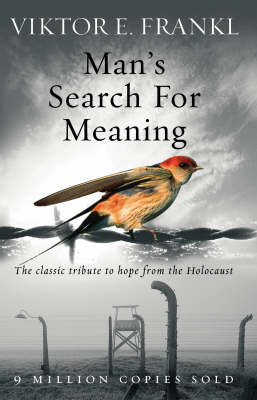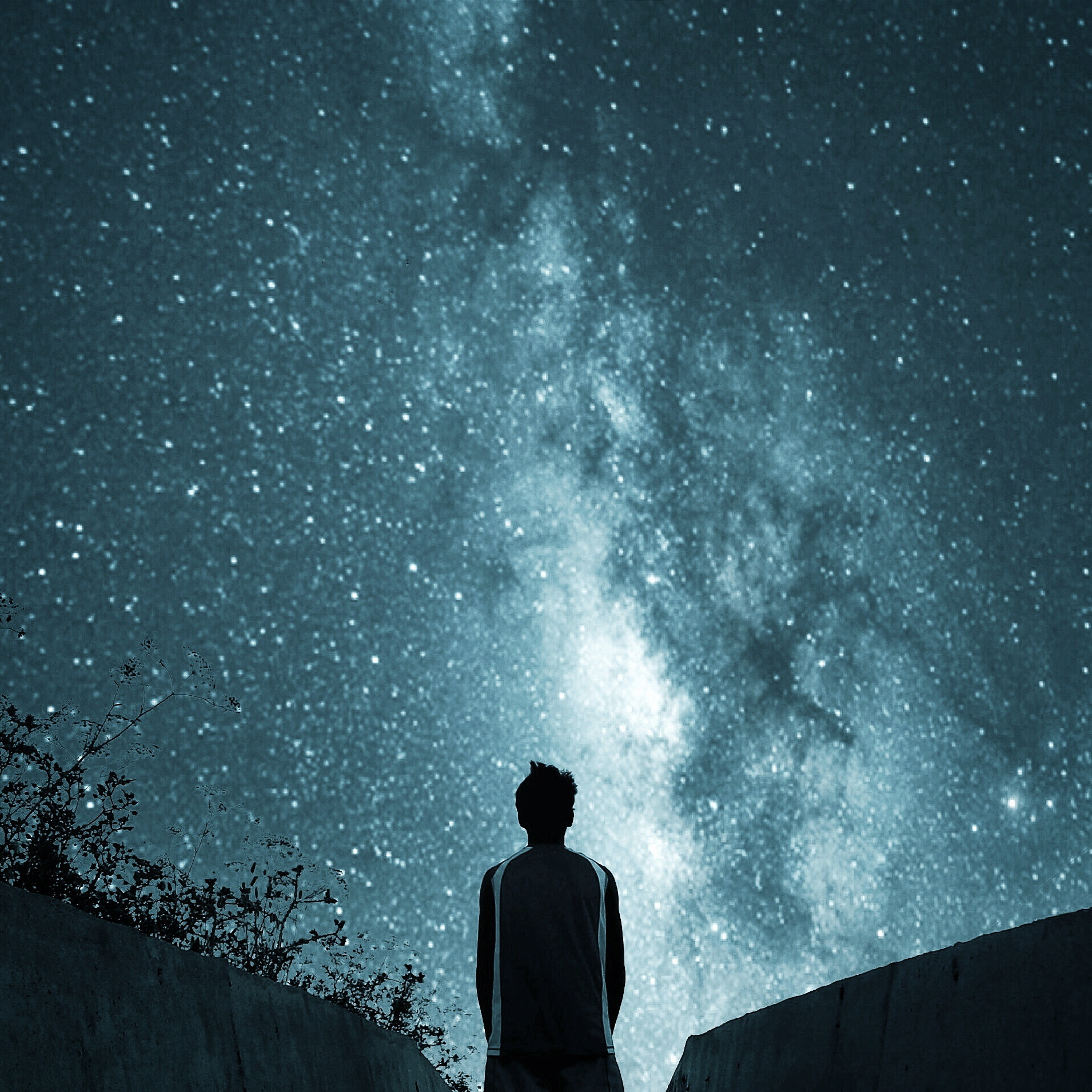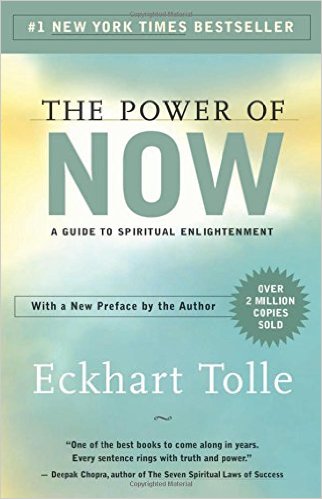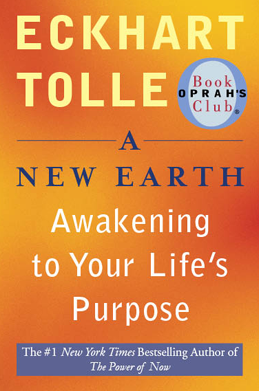|
Word Gems
exploring self-realization, sacred personhood, and full humanity
Editor's 1-Minute Essay:
Choice
return to "Choice" main-page
“We think we are free when we choose, but we are not, are we? Where there is choice, there is no freedom because that very choice springs from our conditioned state… you will see that will is the outcome of innumerable desires, of many forms of frustration, fears, and these frustrations, fears, desires are the outcome of our conditioning, of our background, so when we choose, we are never free. Choice in itself indicates the lack of freedom. A man who is really free has no choice; he is free not to do this or that but to be. As long as we have choice, we are really not free and we are not really individuals. It is very important to understand this because most of us live with choice - choosing a virtue, a person, an action - and choice invariably leads to misery; there is no good choice and bad choice. Only the mind that is free from choice is capable of perceiving what is true. Truth does not come through choice. Truth does not come with analysis, with the capacity to choose between this and that, right and wrong; on the contrary, all choice is the outcome of our conditioning which is based on fear and acquisitiveness." Jiddu Krishnamurti
Allow me to attempt a "Cliff's Notes" version of Krishnamurti's insight. We are tempted to begin with reference to Rousseau's
"Man is born free, and everywhere he is in chains. One man thinks himself the master of others, but remains more of a slave than they are."
Krishnamurti sees the mind of man in a kind of slavery, so encumbered as to nullify the possibility of choice, in any meaningful sense. When the needy Small Ego chooses - be it an idea to live by or a mate to live with - it has little hope of getting it right. In this state of darkness, choice becomes an expression of fear and tormented mind.
What does he mean by,
"A man who is really free has no choice; he is free not to do this or that but to be. As long as we have choice, we are really not free and we are not really individuals."
He's beginning to get on our nerves now with these zen-like provocative statements. As I take a deep breath, however, I recall the purported words of Jesus as recorded in the Gnostic gospels: "Blessed is he who allows himself to be disturbed."
If we live a "conditioned" life, led around by various "infallible gurus" who think for us, we are not being true to ourselves, and therefore, we cannot properly call ourselves individuals.
"A man who is really free has no choice." How counter-intuitive to red-blooded Americans - and yet, if we quiet our spirits, we begin to sense a deep wisdom beckoning us.
The man or woman who lives by the "inner riches" of the "true self" has begun to access Universal Intelligence; we find ourselves in receipt of direction, of a sense of propriety, of growing clarity of purpose and meaning - all this, coming to us naturally, without the mediating services of rationality or the scientific method - we simply know. When this happens, we have not made any choices; the right course for us simply presents itself. A sense of certitude falls upon us. We know - as opposed to believe - what we are to do.
Consult Eckhart's books for advice on how to develop this degree of awareness:
Viktor Frankl spoke of man's last freedom, the power to choose one's attitude even in the most dire of circumstances

Viktor Frankl, Nazi camp survivor and enlightened spirit, is one of my inspirational heroes of history. He is famous for asserting:
“Everything can be taken from a man but one thing: the last of the human freedoms—to choose one’s attitude in any given set of circumstances, to choose one’s own way.”
This is a wonderful precept as it speaks to the dignity and glory of what it means to be human. In view of the Krishnamurti doctrine above, however, I would like to offer the following clarification.
As an example, many people recognize the need to forgive one's enemies. Forgiveness can begin with a choice, but it's more than a choice. Very often we hear people say, "Smith hurt me and caused me a lot of damage. I want to forgive him but I can't seem to generate the feeling of forgiveness. In my deeper heart, I still feel very angry."
We can decide to forgive - we can choose an attitude of forgiveness, and mean it - but without something more, a true spirit of forgiveness can elude us.
The Small Ego cannot forgive, and if we "choose" forgiveness on that surface-plane of life, our good choice will meet with frustration. The answer here lies in accessing a deeper reality of the "true self." On that level of being we will discover not only our oneness with God but with all creation, thereby allowing us to "feel" the grace of forgiveness.
On the level of the "true self," forgiveness is not a choice but a natural response to perceptions of oneness with all of creation. We've now entered Krishnamurti's world of "he is free not to do this or that but to be."
In other articles I discuss how this principle unfolds in the area of romantic love - I speak of the authentic kind now, not the animal-based John-and-Mary version.
True love is not a choice and no amount of effort or strategy will help us. We do not choose our eternal mates - that was done for us a very long time ago, on a much higher level; our part is to prepare ourselves spiritually that we might recognize the sacred Beloved when Heaven arranges for proximity.
|
Elective Affinities, Kindred By Choice
Editor's note: I mentioned my romantic-love research to an old college classmate and good friend, Sonia, now a PhD at Oxford. She suggested that I review Goethe's novel, Elective Affinities (alternately translated from the German, Kindred By Choice), which touches on issues germane to my study.
of blood? or soul and spirit?
Goethe explores the question concerning how marriages come to be. Can one choose a mate, in any real sense? Can we be "kindred by choice"? Might "passion be selected"? (as King Arthur, in the movie Camelot, pondered concerning whether to condemn Lancelot and Guinevere.)
Is the true marriage bond just of this world or deriving from higher planes? Do marriage-mates come together like molecules in chemical bonding? But, if they do enjoy substantial nexus, why are marriages often so easily disrupted by simple presence of a third party?
Let's listen in on this debate in Goethe's Elective Affinities:
“Sometimes they will meet like friends and old acquaintances; they will come rapidly together, and unite without either having to alter itself at all—as wine mixes with water. Others, again, will remain as strangers side by side, and no amount of mechanical mixing or forcing will succeed in combining them. Oil and water may be shaken up together, and the next moment they are separate again, each by itself.”
“It appears to me,” said Charlotte, “that if you choose to call these strange creatures of yours related, the relationship is not so much a relationship of blood, as of soul or of spirit. It is the way in which we see all really deep friendships arise among [humankind]; opposite peculiarities of disposition being what best makes internal union possible."
Editor's note: This lady believes in "opposites attract."
“We had better keep,” said the captain, “to the same instances of which we have already been speaking. Thus, what we call limestone is a more or less pure calcareous earth in combination with a delicate acid, which is familiar to us in the form of a gas. Now, if we place a piece of this stone in diluted sulphuric acid, this will take possession of the lime, and appear with it in the form of gypsum, the gaseous acid at the same time going off in vapor. Here is a case of separation; a combination arises, and we believe ourselves now justified in applying to it the words, Elective Affinity; it really looks as if one relation had been deliberately chosen in preference to another.”
“Unhappily, we know cases enough where a connection apparently indissoluble between two persons, has, by the accidental introduction of a third, been utterly destroyed, and one or the other of the once happily united pair been driven out into the wilderness.”
Editor's note: These characters in Goethe's story speculate on the nature of apparently cohesive forces which unite lovers. Do opposites attract? Do lovers bind themselves to each other just as various chemical elements come together?
But why, and how, is it that two might enjoy a tolerable marriage, but suffer loss when a third party is introduced? Is love, that which passes for love, so fragile and brittle to be swept away in a fickle moment, as depicted in the song Tennessee Waltz: "And while they were dancing, my friend stole my sweetheart from me."
Can you "steal" another's true love? Is that possible? Could this romantic wedge even exist, even in potentia, if the first union were authentic? Is the genuine love-nexus fashioned by mutable human whim and choice, a mere "relationship of blood"? -- or is it something God-breathed and permanent, an eternal union of "soul and spirit"?
Goethe asks - and warns - why do we act surprised when marriages don't work out?
"It is our own fault if we allow ourselves to be surprised [when marriages fail]. We please ourselves with imagining matters of this earth, and particularly matrimonial connections, as very enduring; and as concerns this last point, the plays [or, in our day, the romantic movies] ... help to mislead us; being, as they are, so untrue to the course of the world. In a comedy we see a marriage as the last aim of a desire which is hindered and crossed through a number of acts, and at the instant when it is reached the curtain falls, and the momentary satisfaction continues to ring on in our ears. But in the world it is very different. The play goes on still behind the scenes, and when the curtain rises again we may see and hear, perhaps, little enough of the marriage."
Editor's note: Yes, when the curtain falls, the marriage continues behind the scenes. And that's when the shooting starts. The reality is not like the movies. If we are "surprised" when egoic relationships fail, "it is our own fault," we "please ourselves," as ample evidence of the true nature of things is available.
Twin-Soul romance is not an example of "kindred by choice.” Passion, in its truest form, cannot be selected. The sacred two do not choose this union, as such, but, it might be said, true love, Heaven, and destiny chooses them.
Only this higher form of romantic love, ultimately, will prove to be enduring.
|
|
Editor's last word:
For some time I was confused by Krishnamurti’s provocative assertion that “We think we are free when we choose, but we are not, are we? Where there is choice, there is no freedom,” and “Choice in itself indicates the lack of freedom. A man who is really free has no choice.”
However, I finally understand. But this understanding, though available to all, will not present itself as fruit of “trying very hard to think about it.”
We must go within. We must let the answer come to us, percolating upward from the depths. We must access the true self, align ourselves with Universal Consciousness, and then clarity will begin to be ours.
When we live according to the dictates of the false self, each person will have his or her own perspective. For example, ten people witnessing an accident, or any event, will offer ten different perspectives on what happened. And, on a larger scale, seven billion people on this planet will each offer a different viewpoint on life, truth, meaning, God, and any other big question.
Everything we think we know, all data supplied to us by the mediating five senses, enters our awareness having been filtered, processed, interpreted by limited fields of vision, what grandma/priest/second-grade teacher imposed upon us, along with a personal history of pain, fear-and-guilt, and disillusionment.
There can never be unity of vision and heart when we are led by the slanted testimony of the false self. In this myopic condition, as Krishnamurti said, there is no true freedom, no getting it right, no possibility of authentic choice, as we’re haltered-and-led by our cultural conditioning, education or lack thereof, overlaid with instinctual passions.
And yet, unity, we learn from the afterlife reports, is to be our destiny. How will this happen? It will happen when, more and more, we align ourselves with Universal Consciousness, the “singular, all-pervasive joy.”
We learn from the "quantum" world that only Consciousness is real and objective. All that exists, every environment we might live in, on this side of life and the next, is a kind of virtual reality, drawing provisional existence from a superintending Consciousness. Truth can never be accessed by the "voice in the head," the "chattering monkey-mind." Instead, ultimate reality comes to us by severing the link to all mediating filters, all mechanisms of translation and interpretation.
When, finally, we do, in this state of the untethered, we will find ourselves, for once in our lives, truly free.

Notice again Krishnamurti's dictum: Those who "have no choice" are the truly free. That is, when we align ourselves with Universal Consciousness, we will find, from the deep hidden depths of inner-self, a bubbling up to the surface of personhood a sense of who we are and what we are to do.
And it won't be our choice; not really. It will choose us.
|
|



